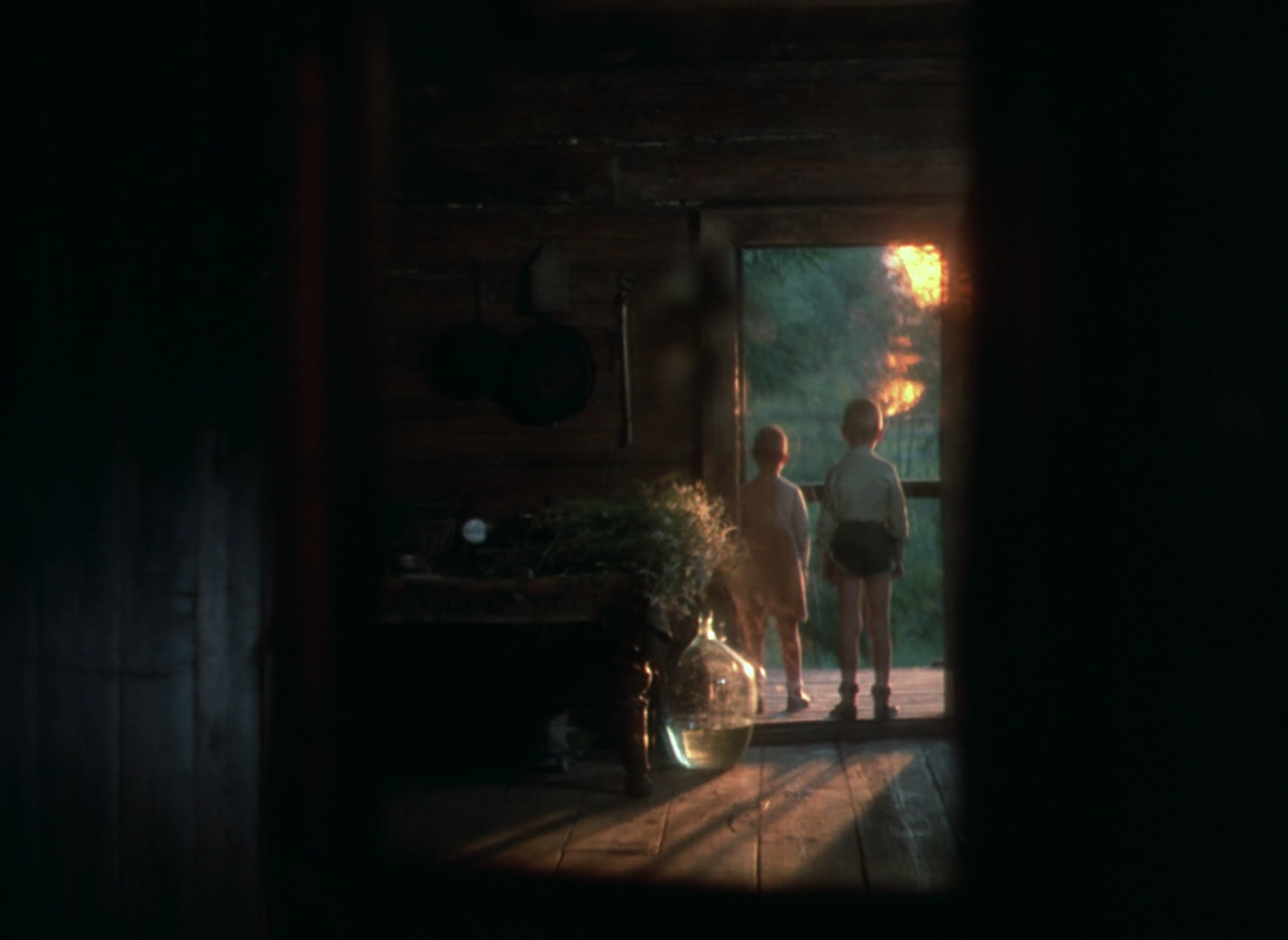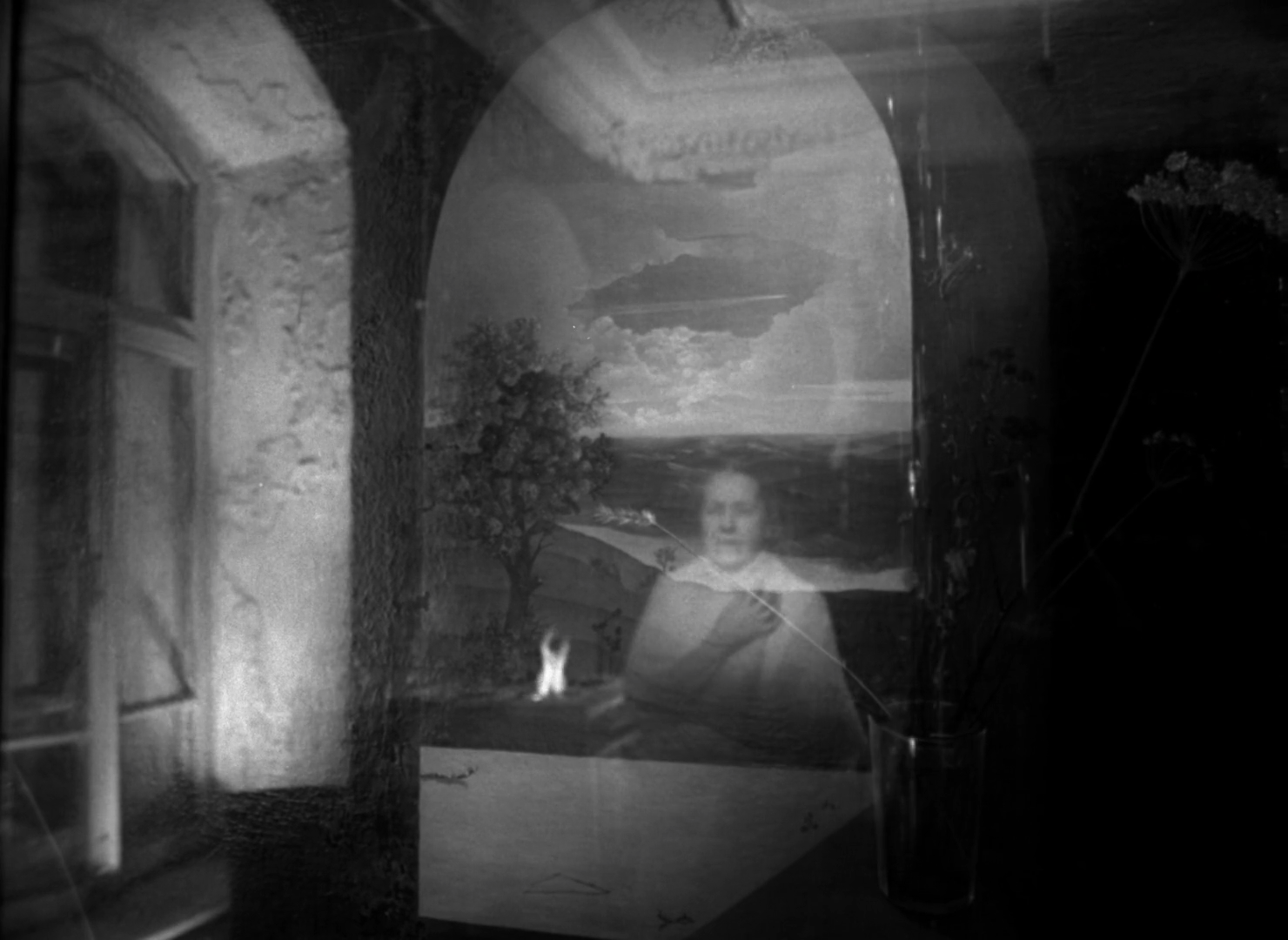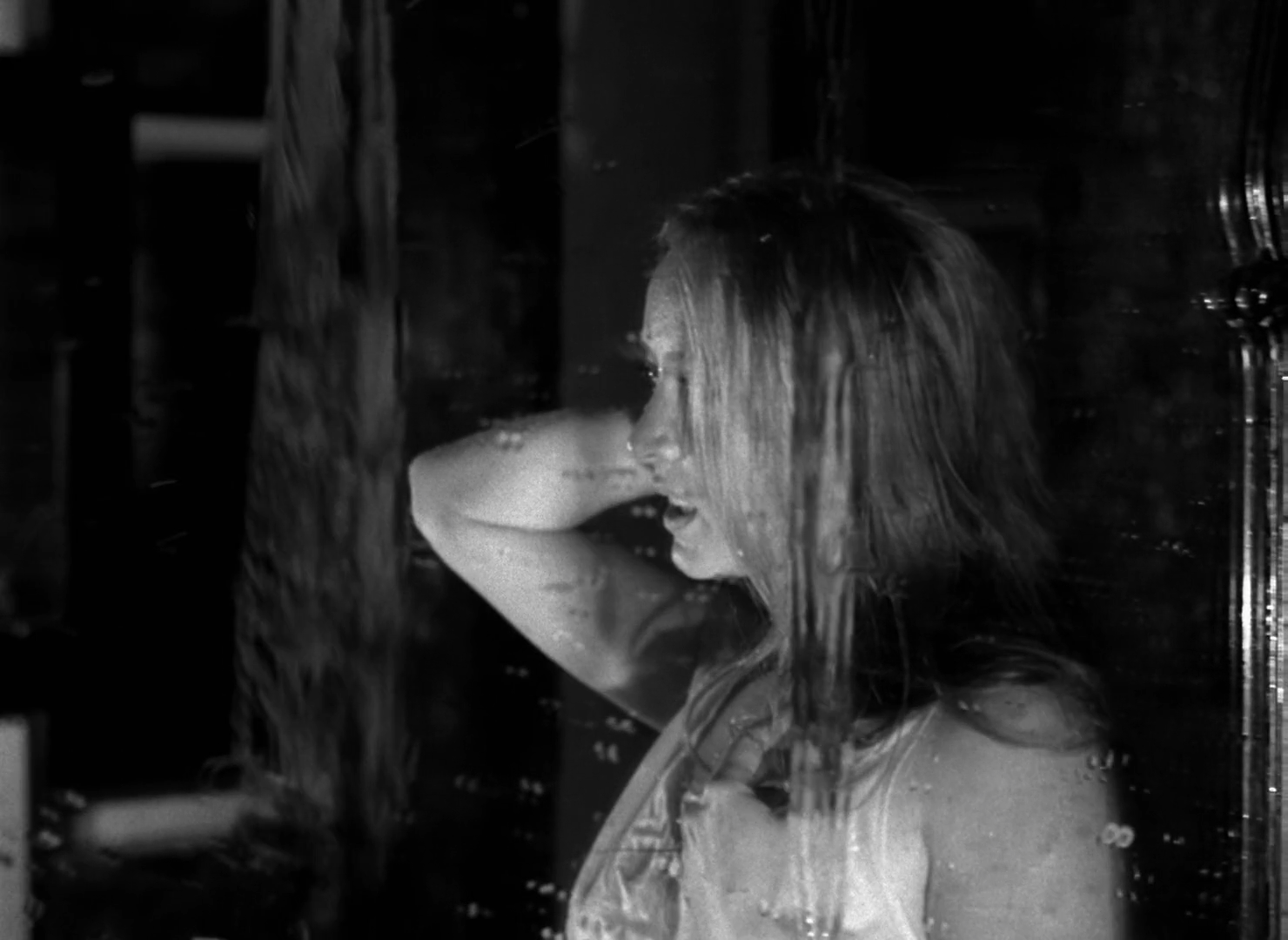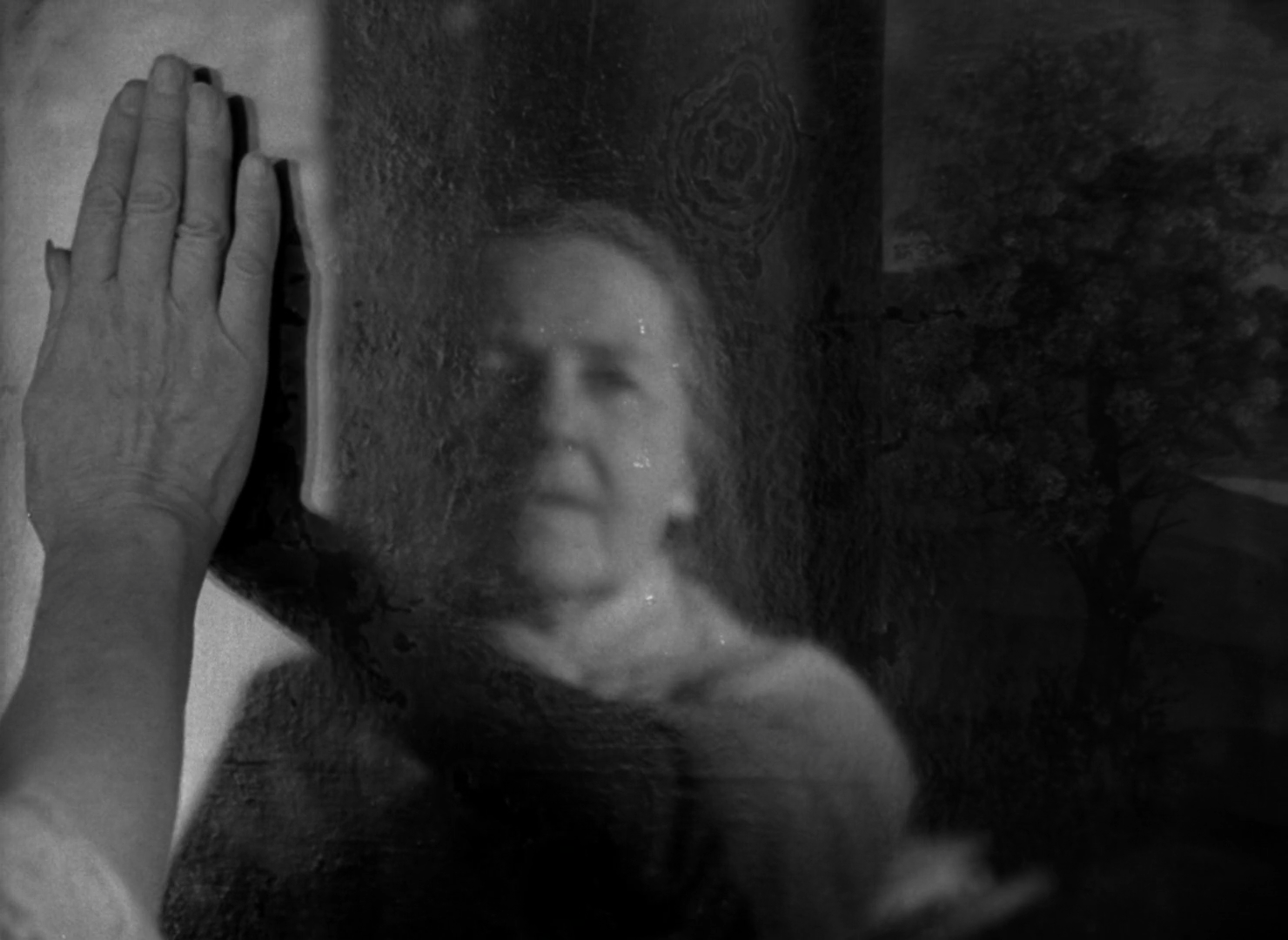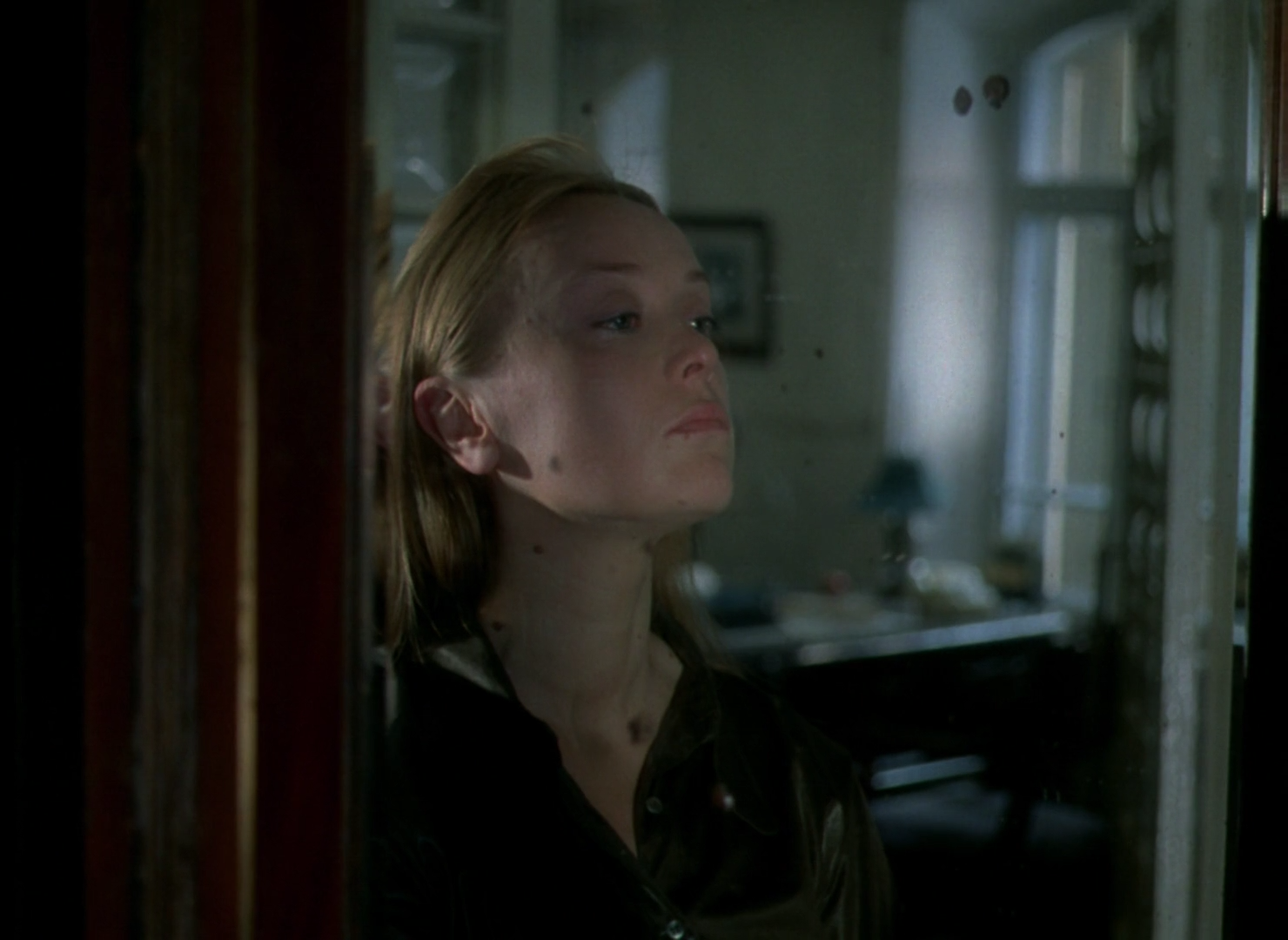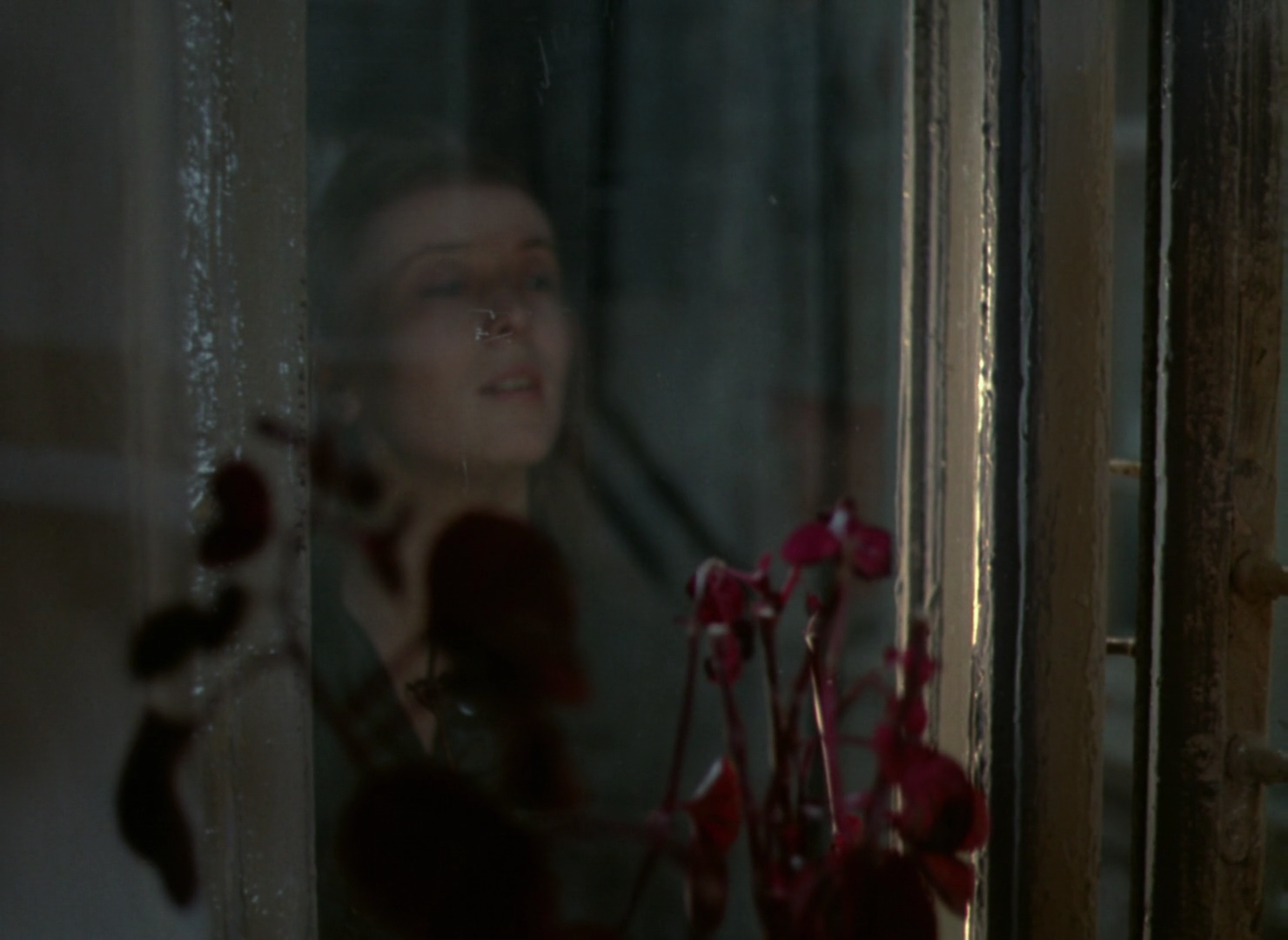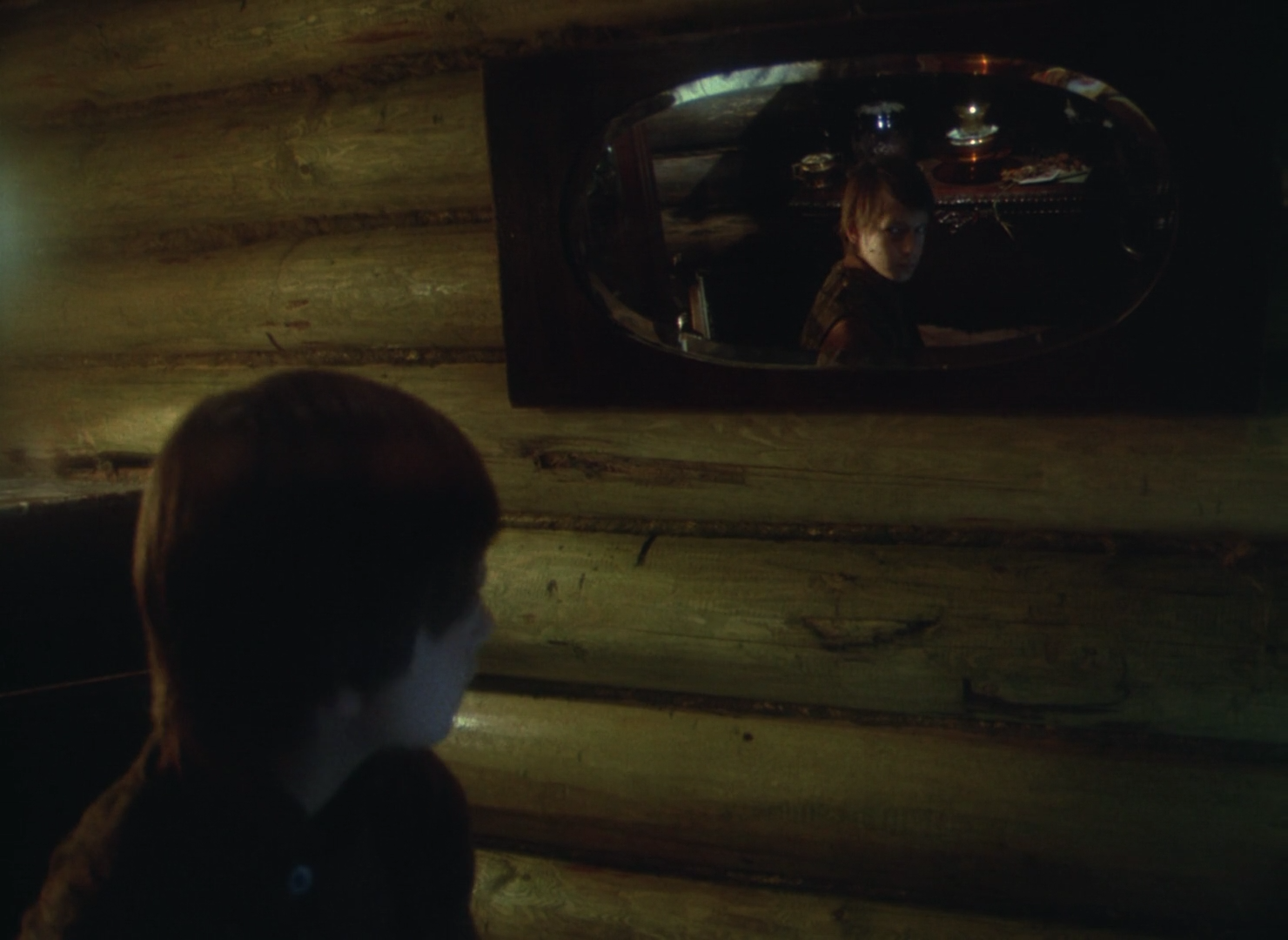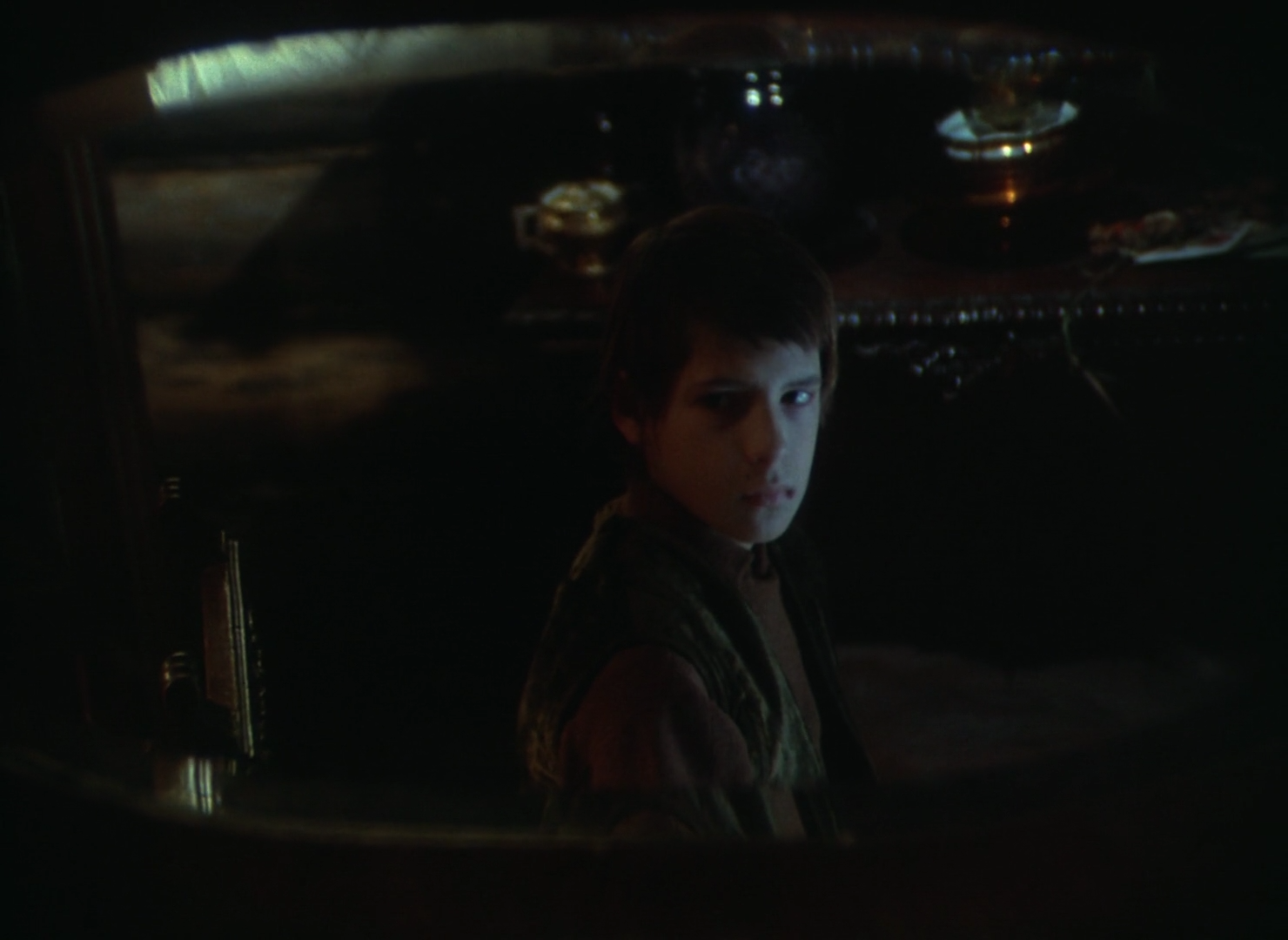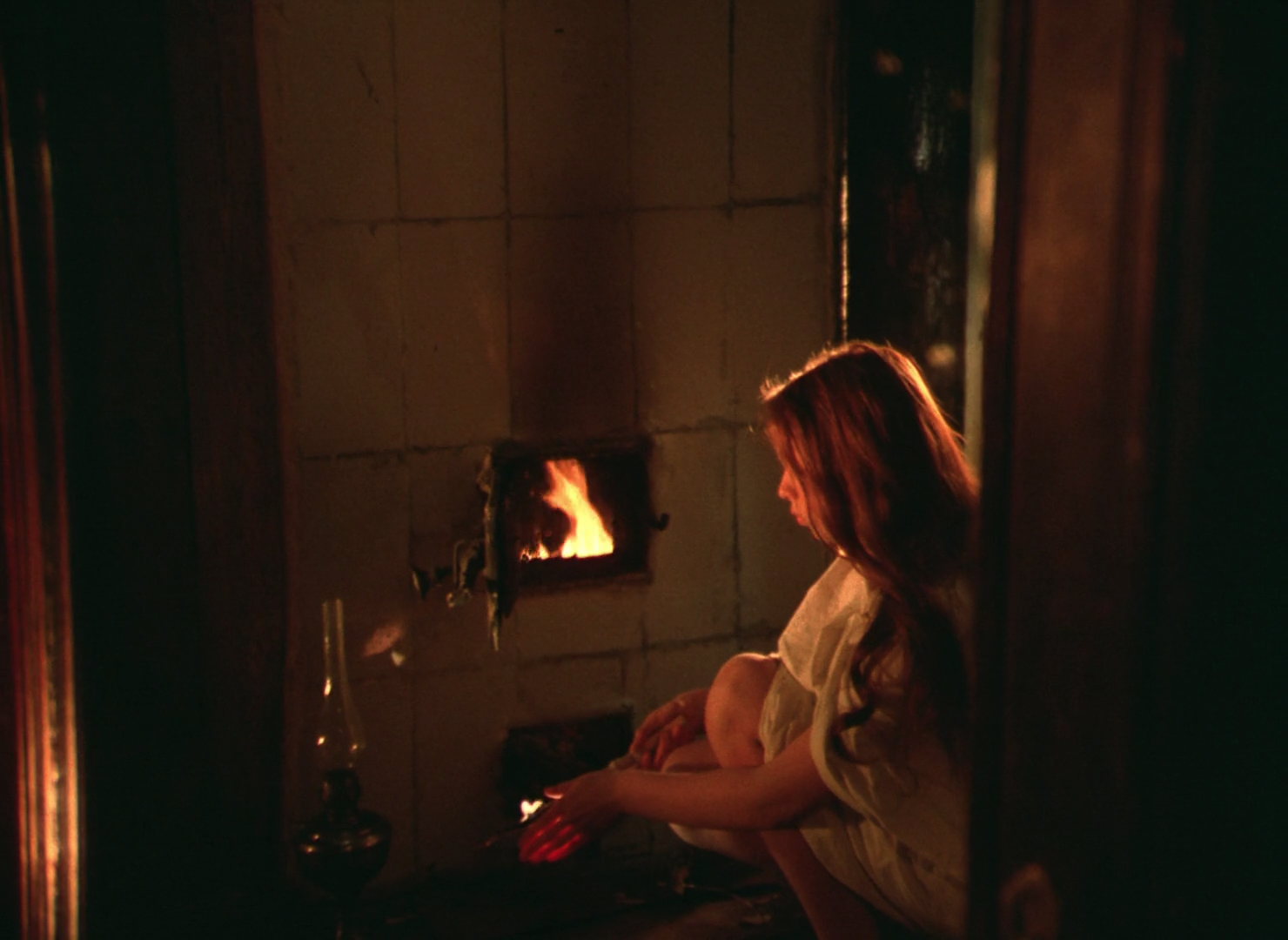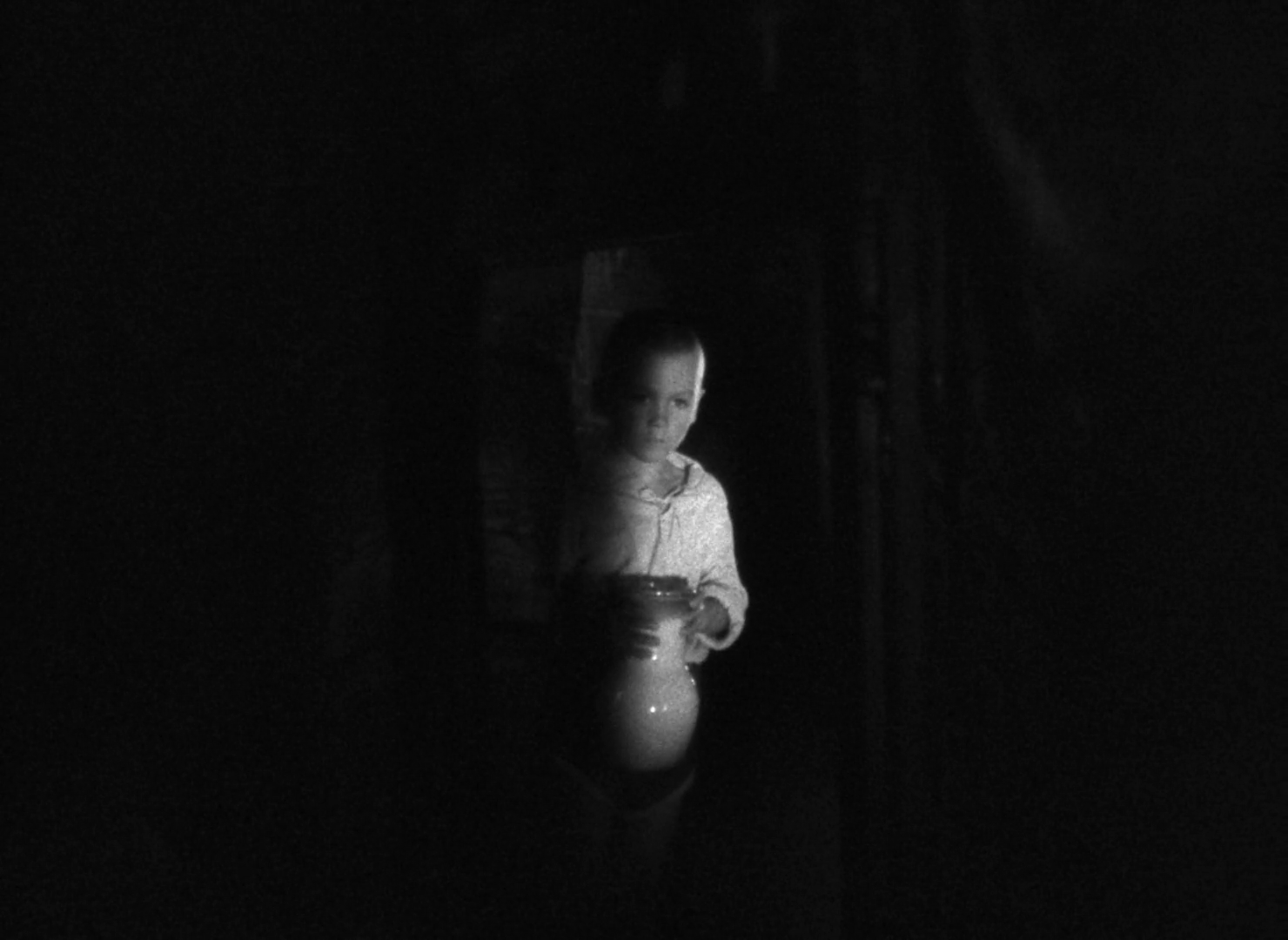Mirror, directed by Andrei Tarkovsky, screenplay by Andrei Tarkovsky and Aleksandr Misharin, cinematography by Georgi Rerberg, music by Eduard Artemev, and edit by Lyudmila Feyginova.
"Mirrors are the essence of movies." When we reflect on Andrei Tarkovsky's poetic direction of film language, we can not help but think Tarkovsky would agree with Nicolas Roeg's statement on the use of mirrors in filmmaking. The mirror shot carries the essence of the frame within a frame technique and the feel of the mise-en-abyme, as in the metaphysical meaning manifested by the story within a story technique found in literature and that translates into the visual arts to great effect. Call to mind Gabriel Garcia Marquez's One Hundred Years of Solitude in literature. In painting, think of Las Meninas by Diego Velázquez. In cinema, consider Orson Welles' Citizen Kane and The Lady from Shanghai. The mirror is an impactful tool for artistic expression. In the hands of a filmmaker who emphasizes the effective use of film language, the mirror furthers visual, emotional, and psychological depth, and in the hands of a filmmaker like Andrei Tarkovsky, it furthers poetic depth, as seen in his masterpiece Mirror. The mirror shot is a shot of intimacy that allows a narrative to connect with an audience in terms of contemplation, discovery, desire, identity, memory, persona and truth, and much more.
